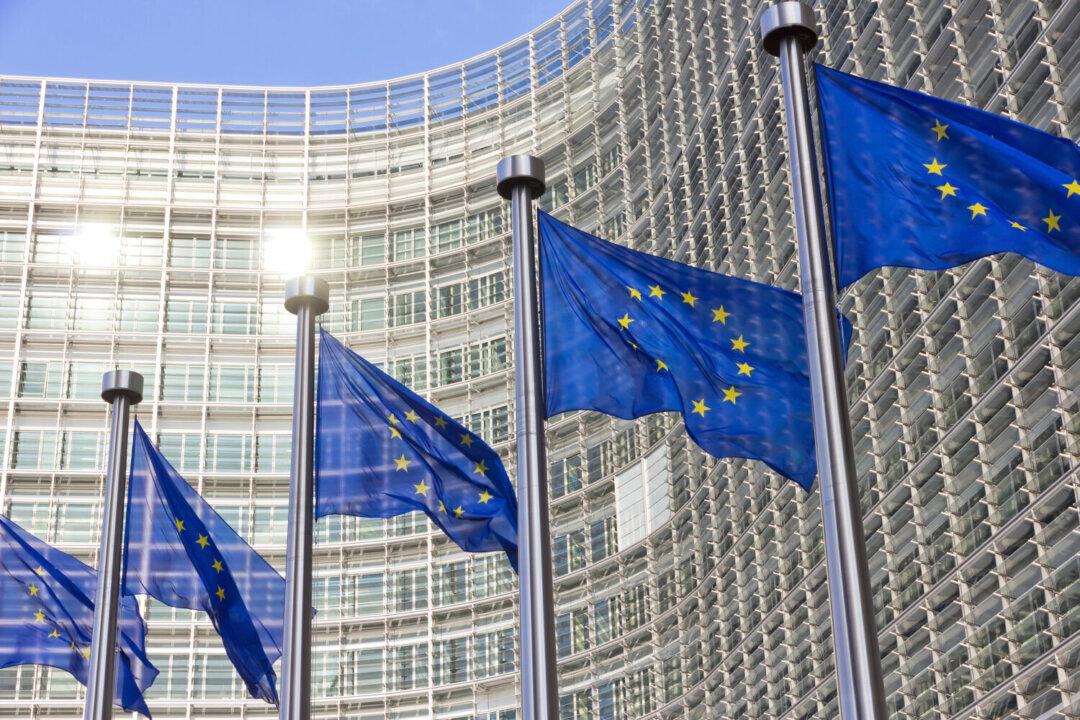Usually, when governments meet for a summit, the meetings end with a press conference. But not on Wednesday at the EU-China summit in Brussels. The Chinese delegation had the scheduled press conference cancelled because independent Chinese media, including The Epoch Times, were going to attend and possibly ask questions, according to journalists present at the scene.
Later, they were allowed in, but the press conference was cancelled.
“It is a very strange thing and it is very suspicious,” said Lorenzo Consoli, President of the International Press Association (IPA) in Brussels. “I think it is quite likely that actually there was very strong interference by the Chinese delegation on the EU organization, in order to block access to independent Chinese media to the final press conference of the EU-China summit,” he said.
Chinese Premier Wen Jiabao was scheduled to be at the conference.
Beijing opposes both media companies because of their bold reportage on Chinese human rights issues, illicit organ harvesting in China, and corruption and misgovernment in China.
In particular, the Epoch Times editorial series, “Nine Commentaries on the Communist Party,” a harsh critique of the regime, aroused the anger of the Chinese communist authorities. Since the publication of the “Nine Commentaries” 81 million Chinese have renounced any association with the Party, according to statistics collected by The Tuidang Center, an NGO that publishes renunciation statements.
After they were initially refused entry, Yang and his colleagues began rallying support: they contacted Consoli, who then called EU press service personnel. Then they went back, with two journalist peers, from Reuters and AP.
The AP and Reuters journalists were allowed to enter, but waited. When it came to Yang and his colleagues, they were again refused. “They thought it was incredible that they wouldn’t let us enter,” Yang said of the AP and Reuters reporters. “To our colleagues, this was not acceptable.
“We had accredited badges, we are free to enter the European Commission, Council, and Parliament for press events,” Yang said.
He then began citing the EU’s Charter of Fundamental Rights to the security guards, which says “The freedom and pluralism of the media shall be respected.” “I told them that they were violating this by blocking us.”
Finally, they were allowed to enter.
Nicolas Kerleroux, head of the European Council’s press office, later apologized to Yang for the delay.
While waiting for the event to begin, however, they learned that it had been cancelled, officially because the summit had run out of time.
“No one believed it,” says Yang.
His colleagues mostly agreed.
“It is difficult to believe, frankly,” said Consoli, the IPA president. “I do not have any proof, but I strongly suspect that the real motivation was the Chinese government, the China delegation, didn’t accept to hold the press conference where independent Chinese journalists were allowed to ask questions.”
Another of Yang’s colleagues, from Euro News, began sniffing around. He contacted a member of the delegation, who told him that some Chinese journalists who are “not friendly” to China had entered, and that they did not want them asking questions, according to Yang.
“Every journalist knows that for such a high level summit, they hold a press conference every time, no matter how late it’s delayed. This time it was cancelled, and that’s never happened before with this explanation of a delay. No journalist believed it,” Yang said.
A similar incident took place in Canada several months ago, when Hu Jintao, general secretary of the Chinese Communist Party, visited.
When the gallery refused, Buzzetti said the embassy looked to the Canadian Prime Minister’s Office, who tried to negotiate a compromise with the Canadian Parliamentary Press Gallery, which is run by journalists. When they refused to strike a deal to exclude the two media, the press conference was cancelled altogether.
Consoli thought it was a shame that the EU-China summit press conference wasn’t held, but stuck to the principle of the matter. “I have to say, in order to have such a press conference, [if] we have to pay the price of not allowing in some independent journalists because an authoritarian regime doesn’t want them… I am sorry, but this is a too high price to pay.
“Independent journalists should always be allowed in press conferences and European press services should never ever allow authoritarian regimes to dictate the policy on access to journalism,” Consoli said.
“It’s very strange, you know, for a summit,” Yang said. “They cancelled the press conference, so it’s like there’s no conclusion.”





